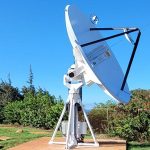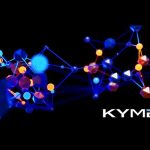The successful testing on Kymeta u7 antenna reportedly confirms the viability of seamless, integrated, multi-service offering across multiple networks and beams.
 Isotropic, a provider of global internet services has partnered with communications company Kymeta to conduct over-the-air testing on Kymetas u7 antenna and next-generation antennas.
Isotropic, a provider of global internet services has partnered with communications company Kymeta to conduct over-the-air testing on Kymetas u7 antenna and next-generation antennas.
The testing took place last week in the Seattle area on Isotropics E115 network. The previous testing took place on the AM2 and G28 satellites on the east coast. The Kymeta u7 antenna was paired with an iDirect X7 satellite router and iQ 200LTE modem, which are optimised for mobility.
As part of the antenna innovators development and testing of its antenna, Kymeta will be using bandwidth provided by Isotropic at the Lake Geneva Earth Station and Isotropics world-class network operations centre.
The successful tests claimed to demonstrate the ability of the antenna to operate across multiple satellite networks and beams. The Kymeta u7 Ku-band satellite terminal addresses the need for lightweight, low-profile, and high-throughput communication systems on-the-move.
Commenting on the partnership, Hank Zbierski, Chief Catalyst and Co-Founder, Isotropic, said: The testing we completed with Kymeta has been a revelation to me. I had been waiting for the promises of holographic beamforming and was sceptical about metamaterial technology. These tests have proven, beyond any doubt, that metamaterial science is not something thats in the futureits deliverable now.
Walter Berger, President, Chief Operating Officer and Chief Financial Officer, Kymeta, added: We are very pleased to have partnered with Isotropic to conduct these tests. Isotropics network is proven to enable robust service delivery on our u7 antenna. This exercise has proven the seamless connectivity of our revolutionary flat-panel antenna technology, and we look forward to our continued work with Isotropic to shape the course of satellite communications in the future.














































































